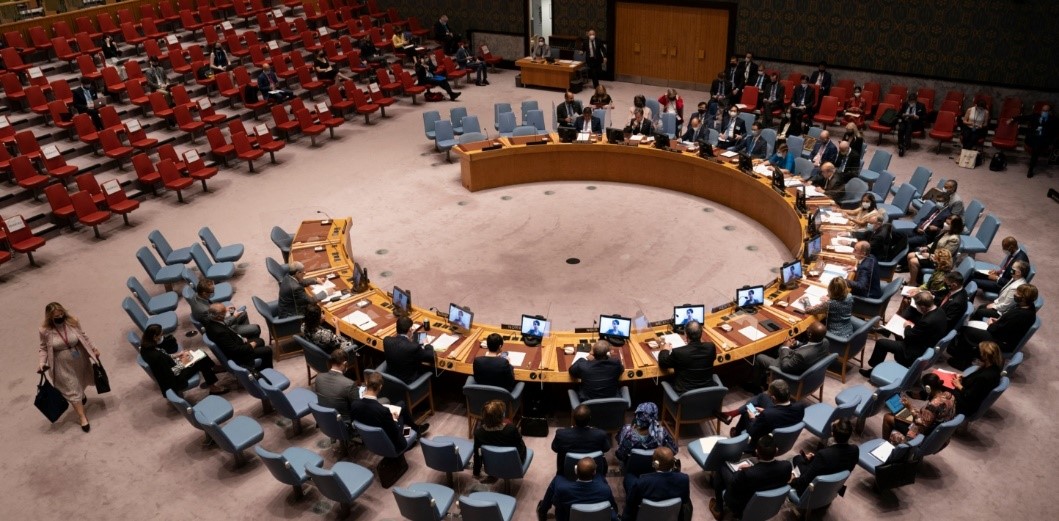The UN Security Council (UNSC) underscored the critical importance of the continued presence of the UN Assistance Mission in Afghanistan (UNAMA) and other UN entities throughout the country, according to a statement from UNAMA.
The statement highlighted that the UNSC has called for all relevant parties to “coordinate with UNAMA in fulfilling its mandate and ensuring the safety and mobility of UN personnel and associates across Afghanistan.” Additionally, the Council requested that the Secretary-General “report every three months on the situation in Afghanistan and the implementation of UNAMA’s mandate.”
The extension of UNAMA’s mandate until March 17, 2025, was praised by the UN Security Council for demonstrating the organization’s long-term commitment to assisting the Afghan people and the necessity of maintaining a field presence. The statement conveyed the Council’s “appreciation for the Organization’s long-term commitment to support the people of that country and stressing the need for a continued field presence.”
The representative from Japan, serving as the Council’s President for March, stressed in his national capacity that the resolution ensures UNAMA is “equipped with a sufficient, robust and flexible mandate” to address Afghanistan’s complex challenges. He noted, “The Mission’s presence is indispensable as the international community seeks to deepen engagement and build confidence with the Taliban,” and it sends “a strong message to the people of Afghanistan that the United Nations — backed by the Council — will continue to work tirelessly for them.”
The Russian envoy highlighted the importance of “cooperation with the Taliban authorities” for lasting peace in Afghanistan, condemning any attempts to “politicize the humanitarian sphere.”
The US representative stated, “The Afghan people deserve to see peace, security, and stability; to enjoy human rights and fundamental freedoms.” He elaborated that by extending UNAMA’s mandate, the Council has enabled the UN to “continue addressing the international community’s priorities in Afghanistan,” promoting peace and facilitating dialogue. Linda Thomas-Greenfield underscored the urgency of restoring “the human rights and fundamental freedoms of all Afghans — particularly women and girls.”
Slovenia’s representative voiced concerns over the “alarming” situation in Afghanistan, especially regarding human rights, and the economic and security conditions affecting the population. She criticized the Taliban’s policies limiting women’s and girls’ rights and urged the group to “respect and fulfil Afghanistan’s obligations under binding human-rights treaties.”
The South Korean envoy lamented the exclusion of “1.4 million girls from secondary education,” advocating for the rights of Afghan women and girls facing “systematic oppression.” He stressed that “suffering increases every day” and the international community is at a “critical juncture regarding the reintegration of Afghanistan into the fold,” emphasizing that the needs and aspirations of the Afghan people should be “the main rationale behind our consideration.”
The Chinese representative expressed disappointment that the resolution did not “reflect the latest developments in Afghanistan,” noting the country’s stability over “two years after the withdrawal of foreign troops.”





